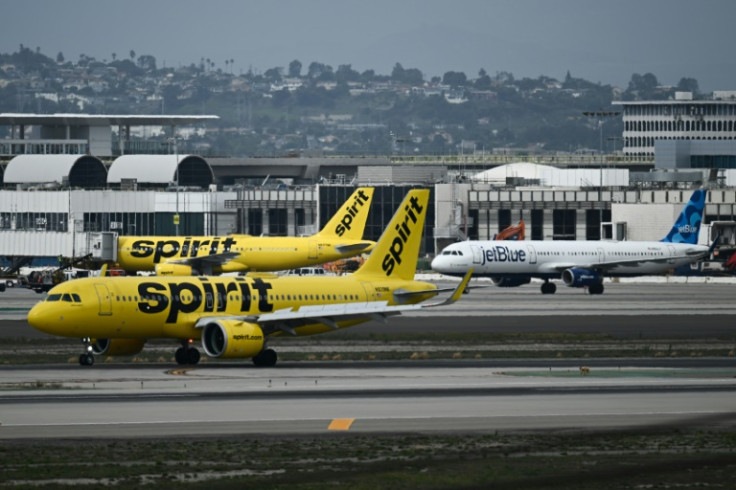Spirit Airlines To Defer $340 Million In Airbus Deliveries, Prepares To Furlough 260 Pilots
Spirit Airlines announced on Monday its decision to defer deliveries of new Airbus planes and implement pilot furloughs as part of an extensive cost-cutting program aimed at improving liquidity. CEO Ted Christie emphasized the necessity of these measures for securing a strong and profitable future for the airline.

The budget carrier revealed plans to defer all Airbus planes scheduled for delivery from the second quarter of 2025 through the end of 2026 to 2030 and 2031. This strategic move is expected to bolster Spirit's liquidity by approximately $340 million over the next two years. Christie highlighted that deferring these aircraft provides an opportunity to refocus the business and adapt to changes in the competitive environment.
Miramar, Florida-based Spirit Airlines has been grappling with financial challenges exacerbated by the grounding of many of its Airbus planes due to a Pratt & Whitney engine recall. The airline's proposed merger with JetBlue Airways earlier this year was thwarted by antitrust concerns, further complicating its path to financial stability.
In response to the deferral of aircraft deliveries, the Air Line Pilots Association (ALPA), Spirit's pilots' union, expressed concerns about the potential ramifications for its members. ALPA is exploring voluntary measures to mitigate the need for pilot furloughs, underscoring the uncertainty facing Spirit's workforce amid restructuring efforts.
Despite the pilot furloughs and aircraft deferrals, Spirit Airlines is optimistic about its ability to navigate these challenges and emerge stronger. Chief Executive Officer Ted Christie reiterated the airline's commitment to its core business and emphasized the importance of adapting to evolving market dynamics.
Financial analysts have offered mixed assessments of Spirit's cost-cutting initiatives. While some view the deferral of aircraft deliveries and pilot furloughs as positive steps to reduce costs, others caution that these measures may limit revenue generation opportunities and potentially impact the airline's long-term growth prospects.
Spirit Airlines' stock experienced a modest uptick following the announcement, reflecting investors' response to the cost-cutting program. However, the airline's shares have declined significantly this year, underscoring ongoing market volatility and uncertainty surrounding its future.
Looking ahead, Spirit Airlines plans to publish its next financial outlook for the quarter and full year within the coming week. The airline is scheduled to report first-quarter results before the market opens on May 6, providing further insights into its financial performance and strategic direction.
Spirit's cost-cutting measures come at a critical juncture for the airline industry, which continues to grapple with the fallout from the COVID-19 pandemic and other operational challenges. As Spirit works to shore up its finances and navigate a rapidly evolving market landscape, stakeholders will closely monitor developments to assess the airline's prospects for recovery and long-term success.
© Copyright IBTimes 2024. All rights reserved.












